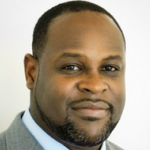Some people in the United States may not know it, but Japan, where I last worked, is a very mature insurance market. In fact, it's the number two insurance market in the world and a highly profitable one. On the other hand, the Czech Republic and Slovakia, where I work now, is what I would call a slowly emerging market.
What’s interesting is that the insurance industry here has deployed itself as if these markets already were mature. From a technology standpoint insurers often carry a lot of the legacy issues that a large and more mature market would have. There is a lot of technical aptitudes based on the excellent technical engineering programs that were stressed during Communism, but things are not as process oriented. And as I have quickly discovered, a lot of the IT talent out here has gone to U.S.- and U.K.-based pharmaceutical and banking companies that have large technical centers here.
If we want to move faster, then we must adapt. In part, that means lowering our technology cost base and getting rid of as many of the legacy technologies (and legacy traits) as possible. It also means making our company more about agility and flexibility than about security and stability. That’s not to say that you don’t think about security, but the value proposition among these four things should be looked at differently.
You see the potential when you look outside of insurance at mobile phone-based companies, which are as advanced or more advanced than in the United States. You can shop for groceries online here, pay your TV and cable bills, and do all your banking. Insurance, though, has been much slower to move. Brokers drive the majority of in our market, so the broker channel is the ultimate customer, in that it is the brokers who choose, or not, to sell our policies to the end users. Therefore we must be more like a mobile phone based company regarding our ability to service them.
What’s interesting is that even the brokers are now asking for simplification from the insurance companies. They want ease of use, flexibility, and agility. To get there, we have to work with our business partners to redefine what our strategy is over the next three to five years. Where do we want to differentiate? Where do we want to be above and beyond everybody else? And what does that mean?
Once we have the right business goals, we must redesign the IT operating model to be bimodal and to improve our ability to deliver what our business needs to succeed. That means moving from an internally focused build mentality to a buy-integrate-broker mentality. Because we want to be more agile in deploying capabilities to our business; I know I can buy much easier and more cheaply than I can build it. IT thus becomes more of a broker and integrator than a builder. Based on the market here we can’t afford to compete with most technology companies. At the same time, I need to flip the status quo rather than maintain it. Although I think an American arriving in Prague from Japan as COO sent a clear message that ”change is gonna come.”



